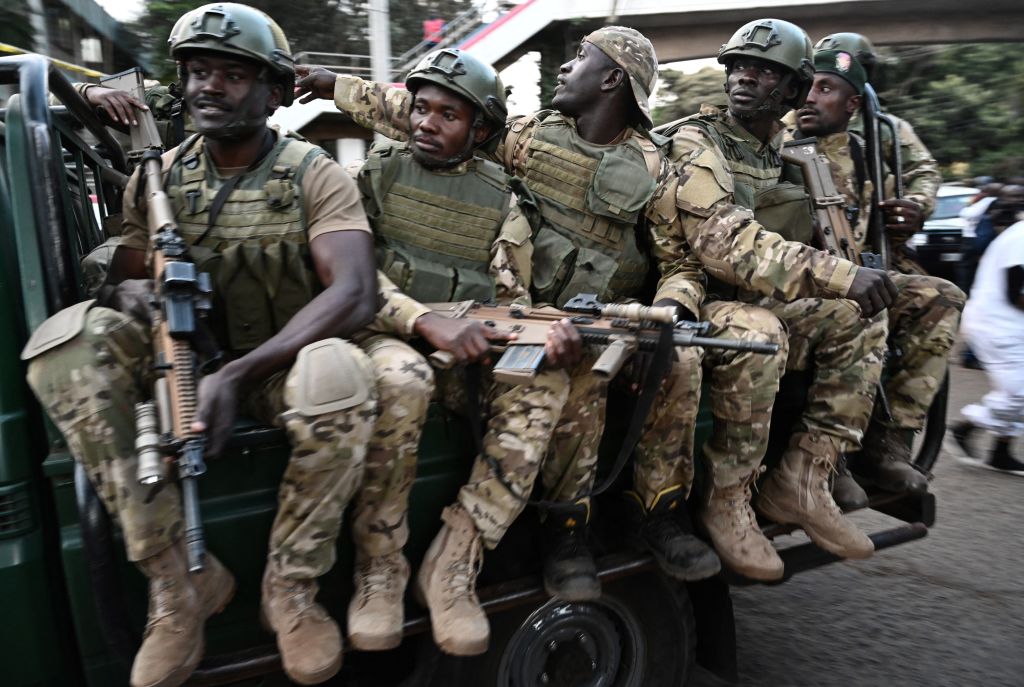ADF STAFF
Al-Shabaab attacks in Kenya’s Northeastern and Coastal regions over two weeks in June killed 23 people, including security officers. Although the terror group hoped the attacks would compel Kenya to pull troops from Somalia, Kenya has vowed to continue the fight and strengthen its border security.
The attacks prompted Aden Duale, Kenyan cabinet secretary for the Ministry of Defense, to call a security meeting attended by security heads, local leaders and residents on June 20. Duale vowed to “completely crush” the terrorist group.
“This will be the administration that will bring an end to terror attacks. Both in our country, along our borders and inside Somalia,” Duale said in a report by Kenyan newspaper The Star. “And so we are telling al-Shabaab that we will not allow you to continue carrying out attacks in any part of Northeastern, Coast or any part of the country. We will not allow a few characters to preach radical ideologies to our people and kill our citizens.”
Kenya and Somalia agreed in May to a phased reopening of their border at three points. Kenyan President William Ruto dismissed criticism that the newly opened border points led to the spate of attacks.
“It was, it still is, the right decision because we have to confront the challenge of al-Shabaab and we have every chance to defeat al-Shabaab,” Ruto told France 24. Ruto added that the group is “trying to reposition themselves to create the impression that they will take over the region. We will not allow them.”
Kenyan Interior Cabinet Secretary Kithure Kindiki and Mohamed Ahmed Sheikh, Somalia’s Minister for Internal Security, agreed to share cross-border intelligence and enhance law enforcement capacity at the borders. They also discussed ways to establish modern border infrastructure to facilitate trade and movement of people.
The three-year, $12 million initiative dubbed “Deris Wanaag” — which is Somali for “Good Neighborliness” — is funded by the United Kingdom.
“Border communities in both countries have so much in common. There is need to strengthen cross-border communication,” Kindiki said, according to a report by The East African. “Our two countries are in agreement on modalities. We will undertake internal consultation on strategies of securing gains made through our partnership.”
Al-Shabaab often uses improvised explosive devices (IEDs) in its attacks. On June 12, eight Kenyan police officers were killed when their vehicle hit an IED in Garissa County, which borders Somalia.
“We suspect the work of al-Shabaab who are now targeting security forces and passenger vehicles,” Northeastern Regional Commissioner John Otieno said in an Agence France-Presse report.
Ten days later, three people were killed and six injured when a Toyota Land Cruiser used for public service drove over a suspected IED in Mandera County, the country’s northeasternmost county, Kenyan newspaper The Star reported.
In response to the increased IED attacks, Duale said the government is modernizing the Kenyan Defense Forces and police artillery with equipment that will include sophisticated armored personnel carriers that can detect IEDs.
Kenya also has built 14 fully equipped Forward Operating Bases along the Somalia border to bolster security in the area as the African Union Transition Mission in Somalia winds down.
“We are fully committed that when the drawdown from the African Union Transition Mission in Somalia (ATMIS) comes, we are secure as a country by ensuring that when al-Shabaab feels the heat of the Somalia Security Forces they don’t come to find refuge in Kenya,” Duale said in a report by The Star. “Our military has a conspicuous presence along the borderline to ensure that Kenyans are secure.”

